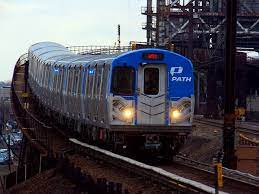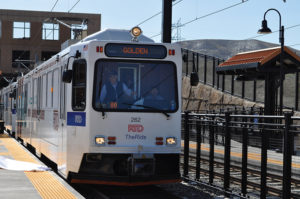Port Authority Board of Commissioners approves 2022 operating and capital budgets
Written by David C. Lester, Editor-in-Chief
Following a month-long public comment period, the Port Authority of New York and New Jersey Board of Commissioners approved the agency’s $7.9 billion 2022 budget. The 2022 budget consists of $3.4 billion for operating expenses, $2.7 billion for annual capital spending, and $1.8 billion for debt service and deferred expenses.
The 2022 budget reflects the ongoing impacts of the COVID-19 pandemic on the Port Authority’s financial condition. It ensures that the Port Authority maintains its commitment to high standards of safety, security, cleanliness, and operational excellence for its customers, while maintaining fiscal discipline.
The 2022 budget investments are supported by a substantial increase in projected revenues in 2022, reflecting the agency’s continuing activity recovery from the COVID-19 pandemic, even as all budget levels remain significantly below pre-pandemic projections.
“The Board’s 2022 budget is a pragmatic approach to effectively balancing the growth we expect in the year ahead with the realities of Covid-19, which has left us in a period of reduced revenues, operational adjustments, and rethinking the way we do business to move this region forward in the most efficient way,” said Port Authority Chairman Kevin O’Toole. “With today’s budget adoption, we are continuing to support our major capital investments within a framework that allows for projects under way to proceed, while building a strategy for future growth and service enhancements.”
“This budget is disciplined and responsible,” said Port Authority Executive Director Rick Cotton. “The budget recognizes the very difficult financial environment while providing the needed resources to enable the agency to carry out its responsibilities and accommodate the growing volume of travelers.”
Toll rates for autos and trucks, as well as PATH fares, remain unchanged in 2022. Pursuant to the September 2019 Board action by the Port Authority Board of Commissioners that adopted a toll and fare increase schedule, the 2022 budget reflects the following:
- A toll increase of $3 per bus, effective on Jan. 3, 2022;
- Based on an automatic inflation increase, a $0.25 AirTrain fare increase, effective March 2022.
The 2022 operating expense budget, totaling $3.4 billion, reflects a core increase of $211 million, or 6.6 percent versus the 2021 austerity operating expense budget. The 2021 austerity operating expense budget reduced the agency’s head count by 626 positions (7 percent) and carried forward approximately $190 million of cost reductions implemented in 2020 (in addition to making further cost reductions needed to offset unavoidable contractual and structural increases elsewhere), among other reductions.
This 2022 operating expense budget holds the head count flat to the reduced 2021 levels and provides for inflation-based growth for labor and contracts, non-discretionary contractual increases, and targeted incremental spending to:
- Prudently restore resources reduced as a result of lower activity volumes at the height of the pandemic in relation to the ongoing activity recovery;
- Make incremental security investments including funding for two new police classes (necessary to maintain the size of the police force after considering retirements) and additional cyber security protections; and
- Invest in new projects and initiatives, including innovative demonstration projects, sustainability initiatives to advance the agency’s new net-zero commitments, and revenue generating and customer experience projects.
The 2022 capital spending budget of $2.7 billion, which advances the agency’s commitment to rebuilding the region’s aging infrastructure, reflects an increase of $316 million, or 13 percent versus the 2021 austerity capital spending budget. This 2022 capital spending budget phases in additional spending in a fiscally prudent manner from the reduced spending levels in 2020 and 2021 that were necessary as a result of the adverse impacts of COVID-19 on the agency’s cash flow and financial position. However, for the third year in a row, annual capital spending is still dramatically reduced from pre-COVID-19 planned spending.
The 2022 debt service and deferred expense budget of $1.8 billion reflects an increase of $74 million, or 4.5 percent versus the 2021 debt service and deferred expense budget. This increase is driven by the schedule of borrowing required to help fund the capital plan, in addition to an increase in deferred expenditures to fund sustainability initiatives, vehicle purchases and replacements (including electric vehicles and buses), and planned technology investments.
Read the agency’s 2022 Budget online here.
Read more articles about passenger rail.





